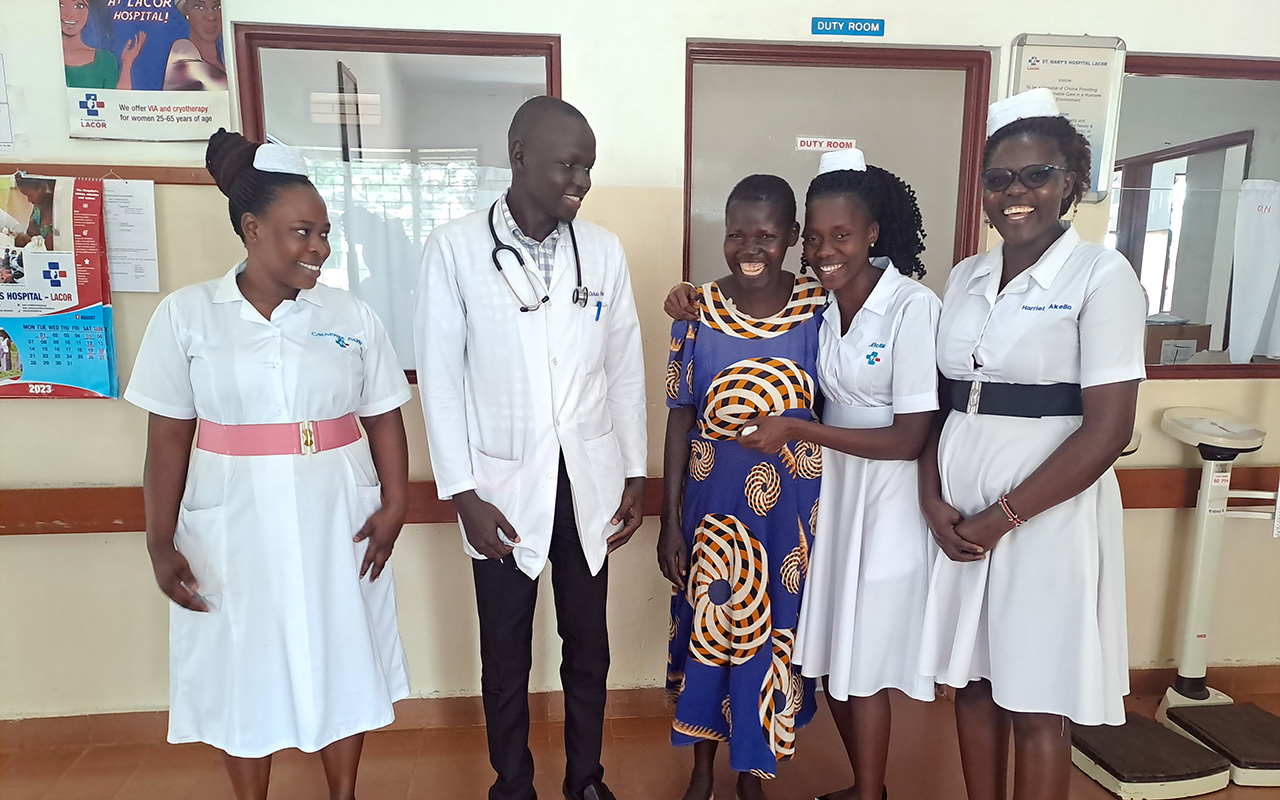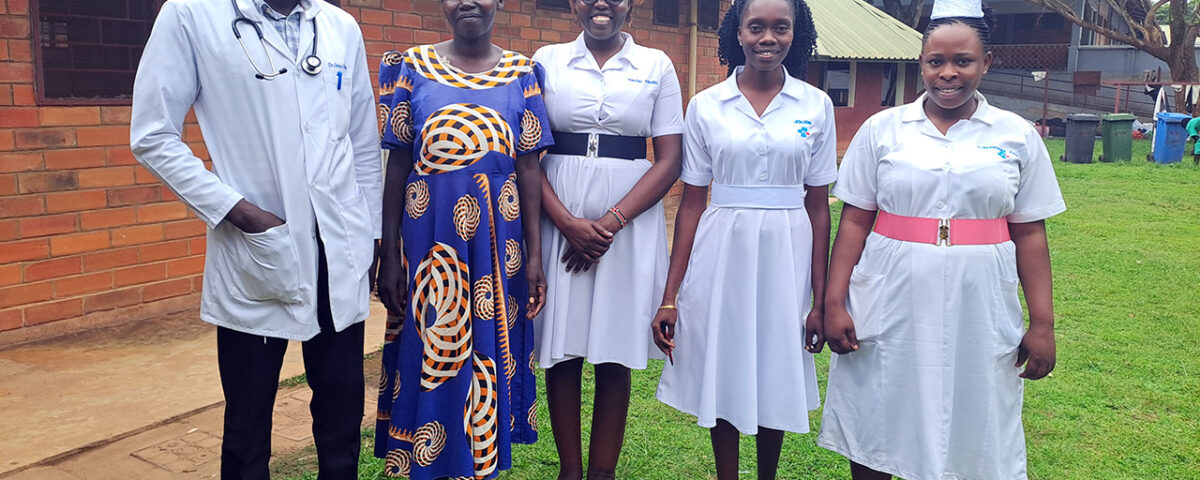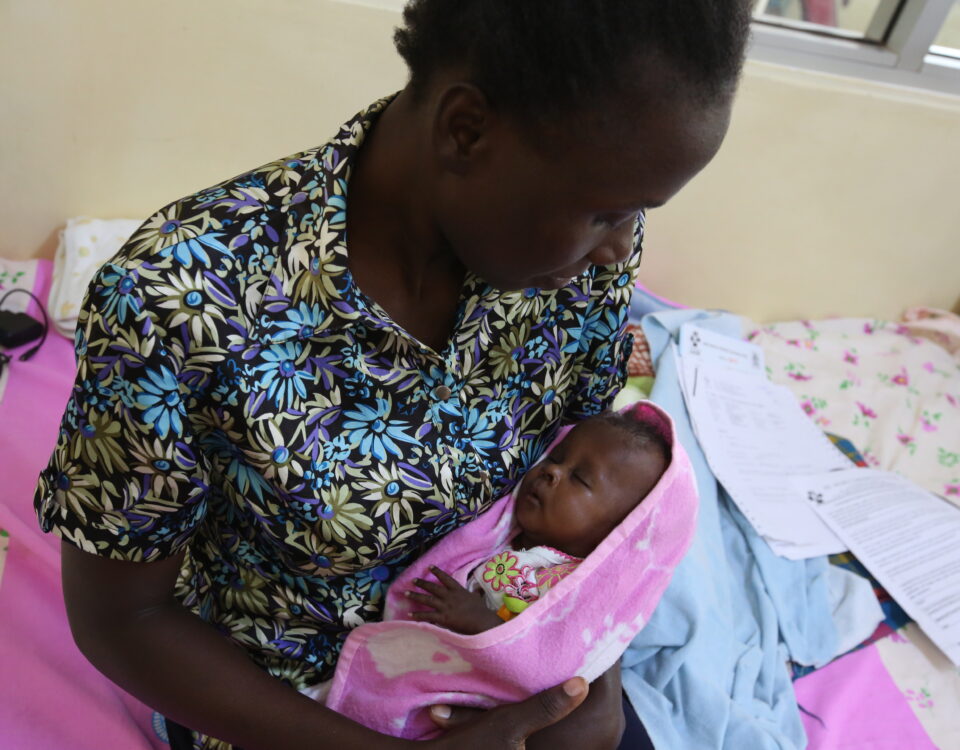45-year-old Janet Ayaa had been suffering in silence for long. She had been bleeding from her private parts for close to 3 months, but never gave her condition a serious attention.
On July 12th 2023, she was rushed to Lacor Hospital at about 7:15pm from Lacor HC III Amuru due to severe anemia for further management from the main hospital. Her attendant reported that she had been unwell for nearly a week, bleeding and progressively became very weak.
On arrival, the mother of 9 was severely dehydrated, pale and very sick looking. Her blood pressure was only 89/47 with a high pulse rate, oxygen saturation on room air was 87% and also disoriented.
The thinking upon reception was that she maybe had an abnormal uterine bleeding that led to the severe anemia and so she was tested for pregnancy which came out negative. Given her previous history of several deliveries many scenarios were considered including septic shock. She was admitted in the Gyn Ward and kept on oxygen. Dr Henry Ochola was in charge of the situation.
Her blood hemoglobin test result was only 1.5 compared to the 11.6 to 15 grams per deciliter for normal ranges in women. The team managing her had to transfuse her 7 times before she could regain herself after several days. It is almost impossible for patients to survive with such a low level of hemoglobin.
“Ideally for a human being, they can’t survive with that blood hemoglobin level of 1.5g/dl. To make it worse, all the other blood cells that any other human being would have; the ones that help to fight infection and help one not to bleed were very reduced to a level that someone could not survive with them,” says Dr Henry Ochola.
The reduction in the number of her platelets made it very difficult for her body to stop the bleeding. It was initially thought that she had a cancer of the uterus given her high parity and advanced age. A complete blood count also revealed that she could be having a bone marrow problem.
After weeks of managing her for anemia, backed by several blood transfusions, Ayaa’s hemoglobin levels rose to 9.4g/dl, much to the joy and relief of the team managing her.
“For us, this one is a miracle patient because hardly do we have patients survive with such a level of Hb,” says Harriet Akello, a Senior Nursing Officer at the Gyn Ward. “The person you are seeing right now, came when she’s almost dead. We’re discharging her and referring her to the Cancer Institute in Koro for further investigations.”

Ayaa (C) shares a light moment with the team at Gyn Ward
Another factor that played a role in Ayaa’s survival was the high spirit of team work at play in our Gyn Ward. When she came, people had to run around looking for blood which has become so scarce, not only in the hospital but the entire country. They had to call students from the nursing school to donate at night. At some point, the team had to beg for blood meant for another patient sourced from attendants.
“I am full of grateful for what the doctors did to me,” says the mother of 4 boys and 5 girls. Ayaa and the father of her children are peasants and they had to sell goats to take care of her medical bills. Because of her illness the number of their animals is significantly reducing.
“Ayaa Janet is a special patient; she’s a patient we’d say really survived by the grace of God – less of our work. She came when she was almost dead I would say. She was semi comatose; very weak, unable to communicate, having difficulty to breath and had a history of bleeding which they tried manage from the lower health facilities before coming to Lacor,” says Dr Henry Ochola.
As we report now, Ayaa is well and in good spirits. She’ll have to report to the newly inaugurated Cancer Institute in Gulu to be investigated for a problem that the doctors think is related to her bone marrow that will be useful when she comes back for review.
Dr. Henry is quite pleased with the outcome and says; “we really give thanks to God, the team that managed her, the lab that gave us blood and also our donors; people who gave us blood – the students, and those who responded to the blood campaign conducted recently.”


